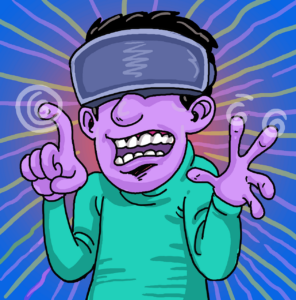We may be getting our expectations up that we may be able to use robots in the future. But, for the time being, we must remember that we have all succumbed to technological slavery as a result of our common Digital Amnesia.
What is Digital Amnesia?
It’s a situation in which our brains are rapidly losing their ability to remember as we become more reliant on technology to store information.
According to the survey, 91.2 per cent of people use the Internet as an online extension of their brain, with little difference between genders and age groups (for example 89.9 per cent of men and 92.6 per cent of women). Almost half of those polled (44.0 per cent) said their smartphone serves as their memory, storing all they need to know or recall.
Furthermore, 85.5 per cent of these believe that in today’s increasingly hyper-connected society, people just have too many phone numbers, email addresses, social media accounts, and other information to remember even if they wanted to.
What causes Digital Amnesia?
Digital technologies are reshaping not only how we work and live, but also how we perceive, acquire, communicate, and recall.
- Memory Loss: We are only partially on acquiring a new skill when we are multitasking on our Phones. It’s doubtful that the information will be stored in our long-term memory.
- Smartphone addiction can cause sleep disturbances. To induce sleep, the brain begins to delete old information to make room for new information, decreasing our ability to store new information and form new memories.
- Pandemic: During this period, people have been subjected to high pressures, illness, isolation, and increased screen time as a result of working from home.
- Medications: Memory loss can be caused or hampered by a variety of prescription and over-the-counter drugs. Memory loss can be caused by antidepressants, antihistamines, anti-anxiety meds, migraine pills, sleeping pills, and pain medications given after surgery, as well as alcohol, tobacco, or drug usage.
How to overcome Digital Amnesia?
- Avoid taking the phone to bed.
- Uninstall time-taking apps.
- Go old-school and use google maps instead of GPS.
- Go phone-free once or twice a week.
- Long-term exposure to mobile phone radiation may have a negative impact on the memory performance of particular brain regions in teens who use their phones a lot. When utilising headphones or a loudspeaker while calling, potential hazards to the brain can be reduced, especially when network quality is poor and the mobile phone is operating at maximum power.
- Try to remember numbers, names and information of events instead of relying on your smartphones.
- Eat Healthy Foods including high-quality proteins and fats and Vitamin B1 and B12 deficiency.
- Walking, aerobics and running are some of the exercises that can be done.
According to the survey, Digital Amnesia affects people of all ages, not only younger digital natives. When it came to having devices, 53.4 per cent of 16-24-year-olds and 44.8 per cent of those aged 55 and up stated they had a table and used it to access the Internet.
When looking for an answer to a topic, respondents aged 55 and over acknowledged searching online first (52.9 per cent) compared to those aged 16 to 24. (44.7 per cent).
Technology is both a blessing and a curse; it is up to you to use it wisely and judiciously.
